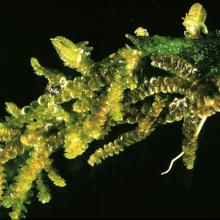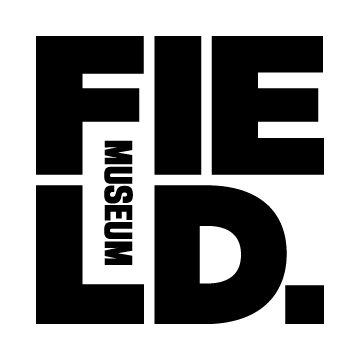
Summary: The project represents an unprecedented investigation of this scale on a leafy liverwort genus, so-called because of the leafy gametophyte morphologies and representing at least 75% of all liverwort species. This project is designed to not only resolve systematic questions in the form of monographic work, but also to help address a number of challenges currently facing liverworts systematics. These include 1) determining homology and patterns of variation for morphological characters; 2) stabilizing infrageneric concepts using a phylogenetic approach; 3) identifying apparently cryptic or nearly cryptic species; 4) the synthesis of exponentially growing data sets to aid in monographic studies; and 5) producing and retaining broadly trained scientists to swell the diminishing ranks of systematists capable of undertaking monographic studies. The challenge will be to how to effectively coordinate these activities, which is a major component of the meeting in November.
Synopsis of meeting (preliminary):
Day 1, Wednesday, November 28
• Introductions
• Individual/group brief presentations
Day 2, Thursday, November 29
• Taxonomy/Classification and revised working list for Frullania worldwide.
• Specialist groups break-away sessions
Day 3, Friday, November 30
• Geography: Identify high priority geographical areas that are under-collected.
• Expand number of participants
• Develop a strategy for the synthesis and unification of data sets.
Outcomes to work towards
• Develop a revised working list for Frullania worldwide.
• Identify high priority geographical areas that are under-collected.
• Discuss current data, data structure, and feeding into EoL.
• Review major clades/subgenera, sections, e.g., Meteoriopsis, Thyopsiella, Diastaloba, and Frullania.
• Review weak areas in taxon sampling - both in terms of geographical and taxonomic coverage.
• Work towards a working, stable and informative classification system.
• Specific content for EoL taxon pages.
• Identify critical species-complexes for population level studies.
• Broadcast and announce findings and recommendations to BRYONET, IAB,
• Develop a strategy for the synthesis and unification of data sets.
• Increase the dissemination of evolutionary history and diversity through Encyclopedia of Life.
Working Towards a Model Systematic Treatment of a Hyper-Diverse Lineage Descended from Early Land Plants (Frullaniaceae, Marchantiophyta): Circular for Meeting Two
This is the second of two synergistic meetings relating to the central theme of an integrative systematic study of the liverwort genus Frullania. The project includes novel elements to help accelerate the pace of scientific discovery and reduce the taxonomic impediment.
The following is a preliminary agenda and details about the second meeting, kindly supported by the primary sponsor - the Encyclopedia of Life Biodiversity Synthesis Center based at The Field Museum. Other sponsors include the National Science Foundation, The Mohamed bin Zayed Species Conservation Fund, Negaunee Foundation, The Field Museum, Chicago, and the Norwegian University of Science and Technology, Trondheim, Norway.
The first meeting held in August, 2012, focused on education and outreach with the majority of participants from universities and colleges from the Chicagoland area. The second meeting will include national and international collaborators focusing on research-driven goals and deliverables.
Convener:
Matt von Konrat (Adjunct Curator & Collections Manager, Botany, The Field Museum, Chicago)
Venue: Biodiversity Synthesis Center, The Field Museum, Chicago, IL, USA
Date: Wednesday November 28 to Friday November 30, 2012
Time: 8.30am-5.00pm
Contacts: Anything relating to the content and subject matter of the meeting, or general questions, please contact Matt von Konrat <mvonkonrat@fieldmuseum.org>
Anything relating to logistics, such as parking, accommodation etc. please contact either Audrey Aronowsky <aaronowsky@fieldmuseum.org>, or Sarah Kim <skim@fieldmuseum.org>
We give special thanks to Audrey, Beth and Sarah for all their efforts with logistics and organization
Participants:
• Yoshinori Asakawa, Professor, Tokushima Bunri University (Tokushima, Japan)
• Laura Briscoe, Research Assistant (The Field Museum, Chicago)
• Thomas Campbell, Biology Instructor (Northeastern Illinois University, Chicago)
• Jorge Antonio Castillo Castro, student, Pontificia Universidad Católica del Ecuador (Pichincha, Ecuador)
• Matthew Greif, Instructor, Dept. of Biology (Wilbur Wright College); Research Associate (The Field Museum, Chicago)
• Anders Hagborg, Associate (The Field Museum, Chicago)
• Jochen Heinrichs, Professor (Georg August University, Göttingen, Germany)
• Joern Hentschel, Postdoctoral Research Fellow, Friedrich Schiller University (Jena, Germany)
• Peter de Lange, Principal Science Advisor, Research and Development, New Zealand Department of Conservation, (Auckland, New Zealand)
• Juan Larraín, Postdoctoral Research Fellow (The Field Museum, Chicago)
• Itambo Malombe, Senior Research Scientist (Nairobi, Kenya)• Jairo Patino, Postdoctoral Research Fellow, Duke University (USA/Belgium)• Matt Renner, ABRS Postdoctoral Research Fellow, Royal Botanical Gardens (Sydney, Australia)
• Robert Lücking, Adjunct Curator & Collections Manager, The Field Museum (Chicago, USA)
• Blanka Shaw, Database Manager, Duke University (Durham, North Carolina)
• Lärs Söderström, Professor, NTNU (Norway, Trondheim)
• Lynika Strozier, Research Assistant (The Field Museum, Chicago)
• Phiangphak Sukkharak, Lecturer, Burapha University (Chonburi, Thailand)
• Jaime Uribe Melendez, Profesor Asociado, Universidad Nacional de Colombia (Bogotá, Colombia)
• Norm Wickett, Conservation Scientist, Genomics and Bioinformatics (Chicago Botanic Garden; Northwestern University, Chicago)
• Li Zhang, Bryologist, Fairy Lake Botanical Garden (Shenzhen, China)
Detailed Agenda:
Day 1, Wednesday November 28
8.30AM Breakfast
9.00–9.30
• Encyclopedia of Life (EoL) to open with a few business matters
• Brief welcome by von Konrat and an overview of the three days
9.30–9.45
• Brief round-the-table introductions
Individual/group presentations
9.45–10.30
• Matt von Konrat (Field Museum)
o Brief background of various collaborative Frullania projects.
10.30–10.45 Coffee/tea break
10.45–11.15
• Matt Greif (Wilbur Wright College/Field Museum)
o Matt Greif is an instructor at Wilbur Wright. Matt will provide an overview of molecular studies currently underway at Field.
11.15–11.45
• Blanka Shaw (Duke University)
o Blanka will provide an overview of collobrative research on Frullania undertaken by Duke University.
11.45–12.30
• Jochen Heinrichs (Georg August University)
o Systematics and Biogeography of Frullania.
12.30–1.30PM Lunch
1.30–2.00
• Li Zhang (Fairy Lake Botanical Garden, China)
o Frullania in China.
2.00–2.30
• Thomas Campbell (Northeastern Illinois University)
o Thomas Campbell is an instructor at Northeastern Illinois University. Tom will provide an overview of a pilot study connecting biodiversity research, collections to classroom curriculum.
2.30-2.45
• Oana Vadineanu (Northeastern Illinois University)
o Oana is an undergraduate students at NEIU. They will provide a students perspective on the pilot project, their own experiences, and an overview of students evaluation of the project.
2.45–3.15
• Jaime Uribe Melendez, Profesor Asociado, Universidad Nacional de Colombia (Bogotá, Colombia), presented by Juan Larraín, Postdoctoral Research Fellow (The Field Museum, Chicago)
o Frullania in South America.
3.00–3.15 Coffee
3.15-4.15
• Yoshinori Asakawa, Professor, Tokushima Bunri University (Tokushima, Japan)
o Phytochemical and Biological Studies of the Liverwort Genus Frullania Raddi
4.15–4.45
• Jairo Patino, Postdoctoral Research Fellow, Duke University (USA/Belgium)
o Population and biogeographic studies.
4.45-5.15
• Norm Wickett, Conservation Scientist, Genomics and Bioinformatics (Chicago Botanic Garden; Northwestern University, Chicago)
o A discussion on next generation sequencing
Session concludes at 5.15pm
Dinner approx. 7.00pm - restaurant to be announced
Day 2, Thursday November 29
[Combination of specialist group break-away sessions and entire group session]
8.30AM Breakfast
Session underway at 9.00AM
9.00–9.30
• Matt Renner, ABRS Postdoctoral Research Fellow, Royal Botanical Gardens (Sydney, Australia)
o Beyond conflict: Matt will discuss what a well sampled, well resolved phylogeny coupled with morphometric data might do for our understanding of processes behind the patterns.
9.30-10.30
• Ed Gilbert, Head of IT, North American Lichens and Bryophytes Thematic Collections Network; iDigBio Cyberinfrastructure Working Group
o Outline of the bryophyte portal through symbiota.org - promoting bio-collaboration.
10.30–10.45 Coffee/tea break
10.45-11.00
• Matt von Konrat, (Adjunct Curator & Collections Manager, Botany, The Field Museum, Chicago)
o Introduction to The Early Land Plants Today project
11.00-11.45
• Lärs Söderström, Professor, NTNU (Norway, Trondheim)
o The Early Land Plants Today project
11.45-12.00
• Principal Science Advisor, Research and Development, New Zealand Department of Conservation (Auckland, New Zealand)
o New Zealand plant conservation: A focus on liverworts
12.00–1.00PM Lunch
1.00–3 PM
• Develop a revised working list for Frullania worldwide.
o Identify critical species-complexes for population level studies.
3.00–3.15 Coffee/tea break
3.15–5.00
• Work towards a working, stable and informative classification system.
• Overview of the different clades, subgenera/sections
Session concludes at 5.00pm
Dinner approx. 7.00pm - restaurant to be announced
Day 3, November 30
8.30AM Breakfast
9.00-9.30M
• Robert Lücking, Adjunct Curator & Collections Manager, The Field Museum (Chicago, USA)
o Using computer tablet devices to aid in identification and as a tool to encourage next generation of students.
REMAINDER OF DAY
Goals:
• Work towards a working, stable and informative classification system.
• Overview of the different clades, subgenera/sections.
• Geography: Identify high priority geographical areas that are under-collected.
• Expand number of participants.
• Develop a strategy for the synthesis and unification of data sets.
Important times!
10.30–10.45 Coffee/tea break
12.00–1.00PM Lunch
3.00–3.15 Coffee/tea break
Session concludes at 5.00pm
Dinner approx. 7.00pm - restaurant to be announced

